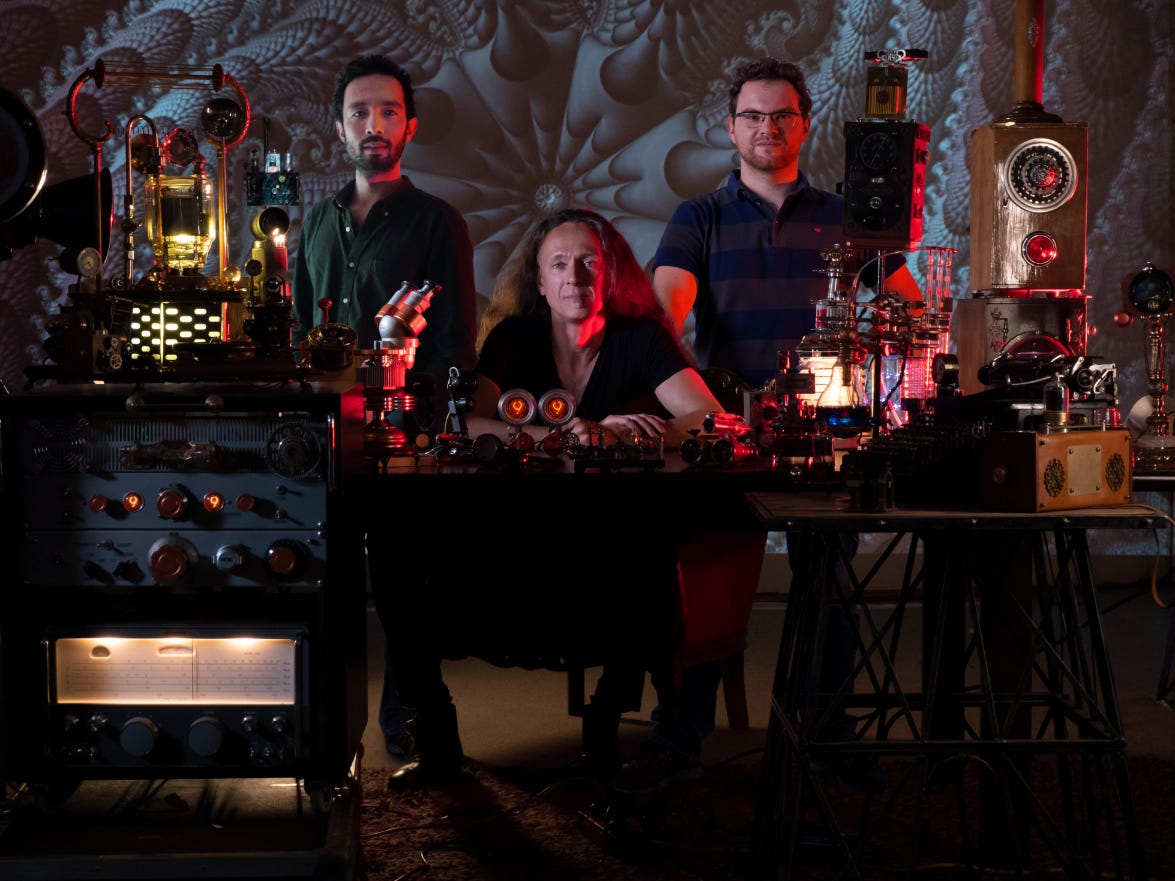
Written by
Aimee Chanthadavong, Senior Journalist

Aimee Chanthadavong
Senior Journalist
Since completing a degree in journalism, Aimee has had her fair share of covering various topics, including business, retail, manufacturing, and travel. She continues to expand her repertoire as a tech journalist with ZDNet.
Full Bio
on January 20, 2022
| Topic: Innovation

Image: Kearon de Clouet/UNSW
A team of University of New South Wales (UNSW) researchers have developed silicon-based quantum processors and shown that it is possible to build silicon-based quantum devices that are compatible with current semiconductor manufacturing and applications.
Published in Nature, the research shows it was possible to achieve one-qubit operation fidelities of up to 99.9% accuracy, two-qubit fidelity of 99.3% accuracy, and a three-qubit system comprising of an electron and two phosphorous atoms introduced in silicon via ion implantation with a fidelity of 92.5%.
“Today’s publication in Nature shows our operations were 99% error-free,” said UNSW professor Andrea Morello, who led the work in partnership with the University of Melbourne, University of Technology Sydney, and others based in the US, Japan, and Egypt.
“When the errors are so rare, it becomes possible to detect them and correct them when they occur. This shows that it is possible to build quantum computers that have enough scale, and enough power, to handle meaningful computation.
“This piece of research is an important milestone on the journey that will get us there.”
The findings were further confirmed by two other independent research teams, also published in Nature. A team of researchers in the Netherlands reported achieving 99.9% one-qubit and 99.7% two-qubit fidelities using electron spins in quantum dots formed in a stack of silicon and silicon-germanium alloy.
Similarly, a team of Japanese researchers achieved 99.8% one-qubit and 99.5% two-qubit fidelities in two-electron using silicon and silicon-germanium alloy quantum dots.
The paper stated that the research proves silicon-based semiconductor spin qubits are stable enough to hold quantum information for long periods, and can be scaled using existing techniques used for semiconductor manufacturing.
“Until now, however, the challenge has been performing quantum logic operations with sufficiently high accuracy,” Morello said.
“Each of the three papers published today shows how this challenge can be overcome to such a degree that errors can be corrected faster than they appear.”
According to Morello, the ability to achieve error rates below 1% leaves the possibility of designing silicon quantum processors that scale up and operate reliably for useful calculations.
Meanwhile, Canberra-based Quantum Brilliance has announced it will be undertaking a $22.5 million joint research project with Germany’s Fraunhofer Institute for Applied Solid State Physics IAF and the University Ulm’s Institute of Quantum Optics to develop new techniques for the fabrication of high-performance quantum microprocessors.
Supported by the German government, the project will aim to solve two key challenges surrounding diamond-based quantum computers by 2025, Quantum Brilliance said. These are the development of atomically precise techniques for the fabrication of quantum microprocessors and to find new methods for selective manipulation of qubits in quantum computers with multiple processor nodes.
As part of the collaboration, Quantum Brilliance and Fraunhofer IAF will jointly develop precision manufacturing techniques for the fabrication of scalable arrays of diamond qubits. In addition, Fraunhofer IAF will work on growth processes for diamond substrates.
At the same time, the Institute of Quantum Optics is developing scalable readout and control techniques for diamond-based qubits to allow them to be precisely controlled.
Canberra to invest AU$12m in local tech commercialisation projects
The Australian government has announced it will be handing out just over AU$12 million in total funding to support Australian businesses commercialise their tech projects.
The AU$12.2 million will be shared between 22 projects as part of the Australian government’s accelerating commercialisation grants.
The largest share, AU$1 million, will be handed to SDIP Innovations which will be put towards bone implant technology designed to give surgeons the ability to treat complex bone defects using bone fillers.
Other recipients are ResusRight, which will commercialise its Juno clinical training and monitoring system to help train clinicians in newborn resuscitation; DetectED-X to help it further develop and pilot ImageID, which uses AI to help train clinicians and radiographers to improve disease diagnosis, such as breast cancer; and Anderson Horticulture to develop its micropropagation technology to improve avocado farming practices.
Victorian-based Southern Ocean SubSea is also another firm to receive a grant, which will be used to develop remotely operated vehicles capable of repairing aquaculture nets, while Western Australia’s Tribe Technology will use its share of the grant to commercialise an automated reverse circulation drilling sample system designed to improve the safety of the mining sector.
“These latest projects are all great examples of Australian innovations – many across high-skilled manufacturing priorities – which have remarkable potential to improve the quality of our lives, create new jobs and support our economic recovery,” Minister for Industry, Energy and Emissions Angus Taylor said.
Related Coverage
Researchers develop new method embedding atoms one-by-one to build quantum chipAustralia prioritises 63 critical technologies including quantum and blockchainSydney’s Tech Central expands with quantum terminal and scaleup hubQuantum technologies are now part of the military’s future roadmap
Australia
|
CXO
|
Digital Transformation
|
Tech Industry
|
Smart Cities
|
Cloud